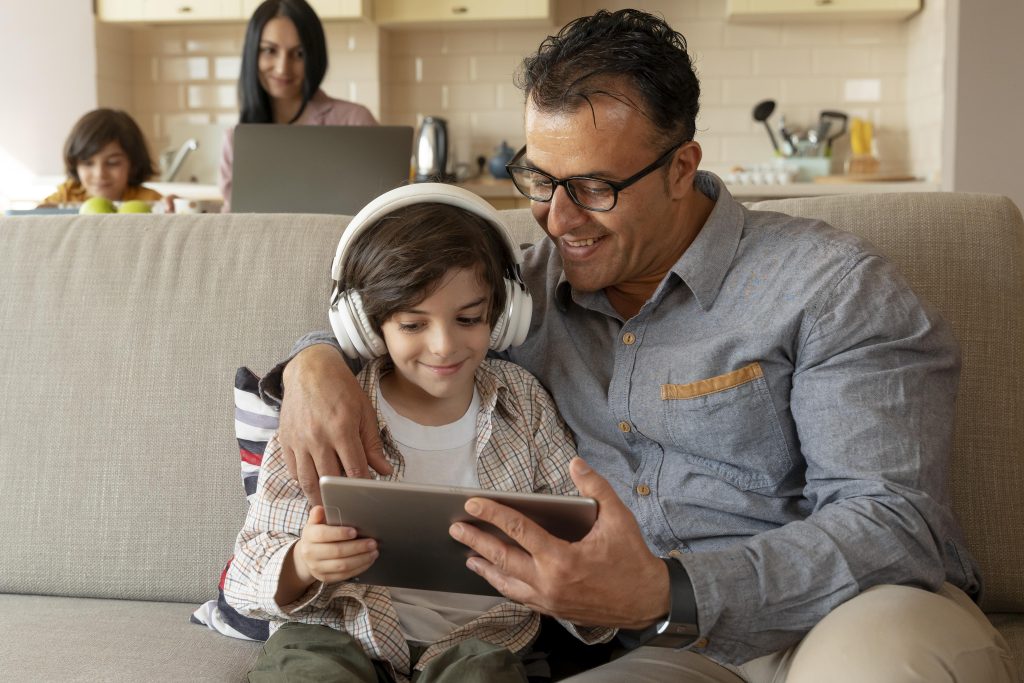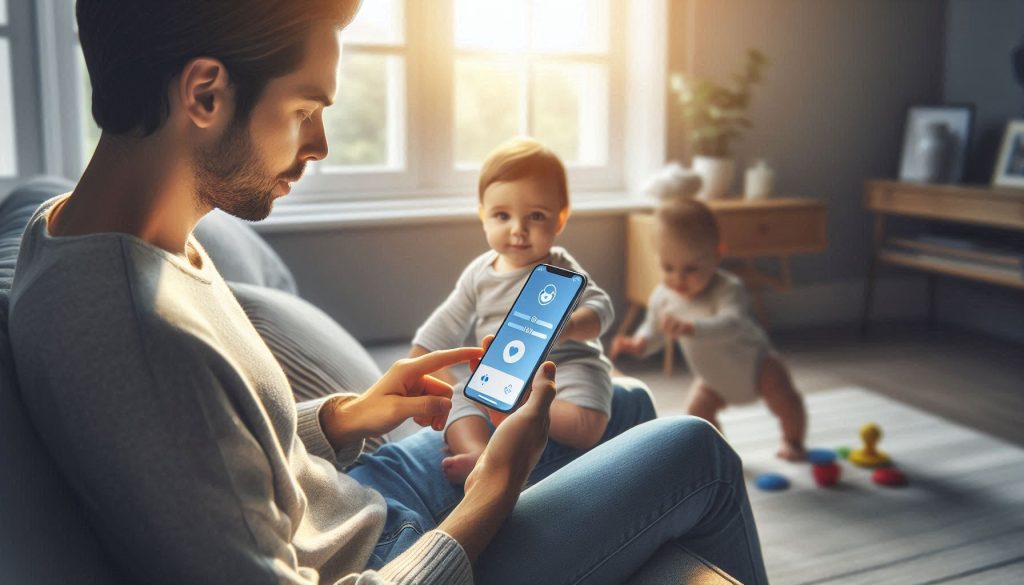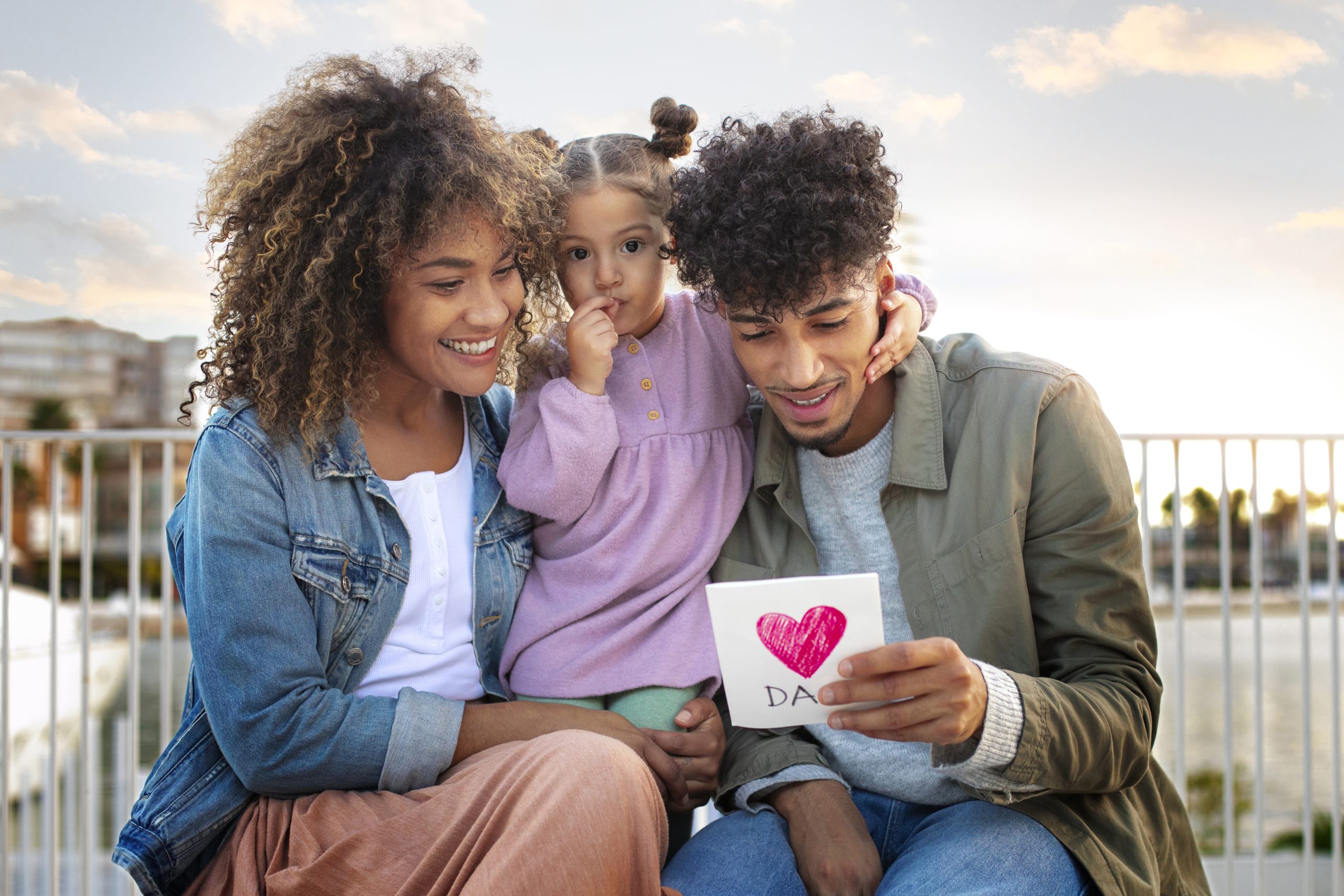Table of Contents
Parenting in the USA has entered a remarkable transformation in 2025.
It’s no longer just about balancing work and family time — it’s about understanding how artificial intelligence (AI) can help parents make better decisions, predict challenges, and build stronger family connections.
The rise of AI parenting tools represents a shift from reactive to proactive parenting. Instead of merely tracking behavior, these tools anticipate needs, offer guidance, and help families thrive in a fast-paced digital world.
In this guide, we’ll explore:
- What AI parenting tools are.
- How they work in American households.
- The ethical and privacy considerations.
- Real-world examples of their impact.
- And how TinyPal fits naturally into this evolving landscape.
Let’s dive in — not as tech critics, but as parents who want to raise emotionally healthy, digitally balanced kids.

AI parenting tools use machine learning, data analytics, and natural language processing (NLP) to understand family dynamics and child development patterns.
Unlike traditional parental control apps, AI-powered platforms learn from your family’s habits and offer personalized insights.
For example:
- They can identify if a child’s screen time spikes during stress periods.
- Detect emotional tone in social interactions (using sentiment analysis).
- Suggest mindfulness breaks or study reminders based on patterns.
- Offer real-time guidance on digital wellbeing and learning.
In short, AI parenting tools act like a family co-pilot — offering context-aware advice rather than just restrictions.
The U.S. leads the world in adopting digital family tools. According to a 2025 Pew Research report:
- Over 78% of American parents use at least one AI-driven app for managing children’s digital behavior or learning.
- 62% believe AI helps reduce parental stress.
- 71% say it improves communication between family members.
Here’s why:
- Time Constraints — With both parents working, AI helps manage household routines automatically.
- Digital Complexity — Children engage with multiple online ecosystems — social media, gaming, education — making manual monitoring impossible.
- Behavioral Insights — AI tools turn vague concerns (“my kid’s always on the phone”) into measurable data (“screen time rose by 20% this week”).
- Safety and Emotional Awareness — AI doesn’t just block — it interprets context, helping parents identify emotional distress early.
Here are the major categories of AI-powered parenting features reshaping family life in the USA:
AI systems study behavioral data to predict potential issues — like lack of focus, sleep irregularities, or emotional stress — before they escalate.

Instead of fixed timers, smart apps dynamically adjust limits based on context — for example, allowing more screen time on weekends or study breaks.
Advanced apps use sentiment detection to analyze messages or tone (without invading privacy), helping parents understand when kids might feel anxious, sad, or withdrawn.
By integrating with wearables, some apps detect irregular sleep, stress, or sedentary behavior and suggest activities.
AI-based chatbots act as virtual parenting coaches, offering advice grounded in child psychology and developmental milestones.
AI in parenting raises legitimate ethical questions.
Who owns the data?
How do we ensure surveillance doesn’t replace trust?
Experts recommend that parents choose apps aligned with COPPA (Children’s Online Privacy Protection Act) and CCPA (California Consumer Privacy Act) standards.
Transparency, opt-in controls, and encrypted data storage are non-negotiable.
American parents increasingly prefer privacy-first platforms — those that collect minimal data, anonymize it locally, and give full visibility to users.
This is where platforms like TinyPal stand out — they emphasize privacy by design, giving parents peace of mind while still offering powerful AI insights.
When used ethically and consciously, AI tools bring massive advantages for U.S. families:
| Benefit | Description |
|---|---|
| Emotional Awareness | Detects mood changes and helps spark meaningful conversations. |
| Behavioral Patterns | Identifies digital habits early and provides data-driven feedback. |
| Routine Management | Automates chores, bedtime reminders, and study sessions. |
| Stress Reduction for Parents | AI coaching helps avoid conflicts about rules and routines. |
| Safety & Privacy | AI flags unusual online activity or potential cyber risks. |
AI isn’t here to replace parents — it’s here to amplify empathy with intelligence.

If you’re an American parent comparing AI parenting tools, here’s what to look for:
- Data Transparency: Clear policies on what’s collected, why, and where it’s stored.
- Customizability: Every family is unique — choose apps with flexible controls.
- Child Empowerment: Apps should teach self-regulation, not impose restrictions.
- Community Support: Peer advice helps contextualize AI insights.
- Scientific Validation: Choose apps built with input from educators and psychologists.
TinyPal, for example, integrates child development models validated by parenting experts and aligns them with AI predictions to deliver practical guidance.
TinyPal has become one of the most trusted AI parenting apps in the U.S. — not by promoting control, but by encouraging digital harmony.
Here’s how it supports modern parents:
- AI Smart Routine Engine — Learns family schedules and adjusts digital limits automatically.
- Emotion-Aware Insights — Uses NLP to identify stress or fatigue in children’s digital behavior.
- Privacy Shield Technology — Keeps all personal data stored securely within the U.S. (compliant with CCPA & COPPA).
- Positive Reinforcement — Encourages children with digital rewards for healthy behavior.
- Human Touch — Parents can chat with child behavior experts for personalized guidance.
TinyPal’s mission is clear: to use AI not to replace parenting, but to make it more mindful, data-driven, and connected.
“TinyPal’s AI insights helped me understand why my daughter was using her phone late — not just that she was. It changed our approach from arguments to empathy.”
— Sarah L., California
Case Study: The Miller Family, Texas
Before TinyPal, managing three kids’ online time was chaos.
After installing the app:
- Their evening screen time dropped 30%.
- Homework completion improved by 20%.
- Family gaming nights replaced solo phone scrolling.
- Communication about online safety increased.
The AI insights didn’t just monitor — they motivated behavior change.
By 2027, experts predict:
- 9 in 10 U.S. households with children will use at least one AI parenting feature.
- AI systems will sync with schools for collaborative wellbeing dashboards.
- Emotion AI will become integral to digital education and family wellness.
The evolution is clear: parenting apps will soon act as personalized family operating systems, blending psychology, education, and data science.

Parenting has always been about love, guidance, and patience.
In 2025, it also includes data, ethics, and technology.
AI parenting tools — like TinyPal — are not replacements for human care. They are companions that translate complexity into clarity, helping American parents nurture resilience, empathy, and self-awareness in their kids.
The ultimate goal isn’t to control children — it’s to help them understand themselves in a world shaped by technology.
